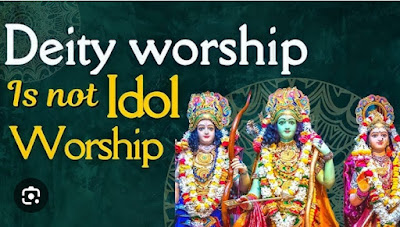Part 4 of this book club - (Same God, Other God by Alon Goshen-Gottstein):
If Hindus are to become to administrative caste under a Noahide World Order, they must be absolved of the crime of idolatry (avoda zara). Here Gottstein discusses the rabbinical opinions of Maimonides, Nachmanides, and Meir when it comes to the question of avoda zara and its permissible for non-Jews. New avenues are opened up for accepting Hinduism, especially with Meiri.
- An understanding of how Christianity is classified can help Jews understand whether or not Hinduism is avoda zara (idolatry).
- There is little on rabbinical opinion specifically on Hinduism.
- If we take Maimonides view, Hinduism is avoda Zara, this has been the popular opinion.
- But there are gaps and lack of nuance to Maimonides and then there is the question as to whether or not Hindu self-understanding fits within avoda zara.
- The Maimonides approach uses a Jewish understanding of Christianity to understand Hinduism, but this might not be appropriate.
- Nachmonides differs from Maimonides in that he makes the distinction between what is permissible for Jews verses what is permissible for non-Jews.
- In Nachmanides eyes, a certain degree of avoda zara may be permissible for non-Jews.
- Nachmanides may even allow the worship of humans for non-Jews.
- Nachmonides says the god of Israel need not be worshiped by non-Jews, but knowledge of him cannot be absent.
- According to Nachmanadies, non-Jews may worship other beings alongside god, this is called shituf.
- Like Christianity which is shituf, Hinduism may be permissible for non-Jews as long as the god of Israel is not forgotten.
- The definition of shituf may not fit Hindu self-understanding.
- Rabbi Meiri says that as long as a religion promotes morality, it is permissible for non-Jews.
- Meiri's position would make Hinduism permissible for non-Jews.





No comments:
Post a Comment